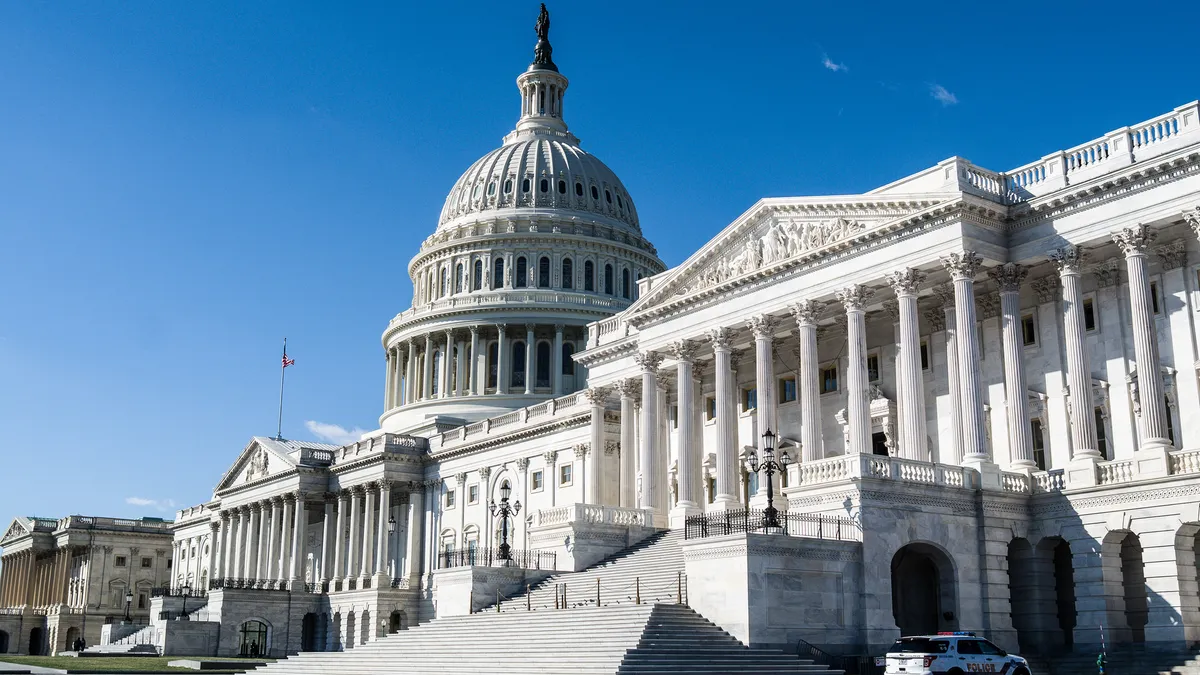Dive Brief:
- U.S. Senators are exploring several options to pass the currently-stalled American Vision for Safer Transportation Through Advancement of Revolutionary Technologies (AV START) Act before the November mid-term elections.
- Multiple sources confirmed to Smart Cities Dive that lawmakers want to either have the bill pass the full Senate by unanimous consent through addressing Senators’ remaining concerns, or they might attach it to another piece of legislation that receives floor time.
- According to the office of U.S. Sen. Gary Peters, D-Mich., the bill could be tacked onto reauthorization of the Federal Aviation Administration (FAA) or something else, depending on what gets floor time. Senate Commerce Committee spokesman Frederick Hall told Smart Cities Dive in an email the committee is "looking at different possibilities for moving the AV START Act."
Dive Insight:
After passing the Senate Commerce Committee last year by a voice vote, the AV START Act has failed to make it to the floor of the full Senate, leading lawmakers to consider other maneuvers as they try and assure its passage.
Earlier this year, Peters said the growth of autonomous vehicles (AVs) would help improve road safety, although their impact on the labor force requires more study, especially in areas such as trucking.
The legislation and the wider use of AVs have been the subject of worries from some Senators, including U.S. Sen. Dianne Feinstein, D-CA, who led a letter expressing concerns around their safety and implementation.
Those concerns have played into the delay on the AV START Act’s passage, with several having placed a hold on the bill to prevent it moving forward. The letter calls for new safety standards, clear direction to federal regulators to analyze data on AV deployment, as well as the development of cybersecurity safeguards to protect that data.
Adding the bill to legislation reauthorizing the FAA could be a difficult lift given the high profile of that legislation. But with Senate Majority Leader Mitch McConnell having canceled most of the chamber’s August recess, Peters’ office expressed hope that it can get done before November with strong support from both sides of the aisle, something Hall agreed with.
"We believe the legislation will attract significant bipartisan support in any floor vote," he said.
The bill has also received support from the Competitive Enterprise Institute, a nonprofit dedicated to limited government.
AVs remain a hot topic in Congress, even after the House of Representatives passed its own piece of legislation, known as the SELF DRIVE Act. Earlier this week, officials with the House Energy and Commerce Committee, where the bill passed unanimously, blasted an op-ed written by organizations opposed to the bill for perpetuating what the committee described as several "myths."
And for those in the AV space, the lack of legislative certainty is causing some headaches. At this week's Meeting of the Minds Mobility Summit in Ann Arbor, Michigan, Joe Boissy, chief marketing officer at traffic and weather technology company Iteris said there needs to be clearer direction
"There is a lot of uncertainty, a lot of dichotomy today," he said during a panel discussion at the event.














